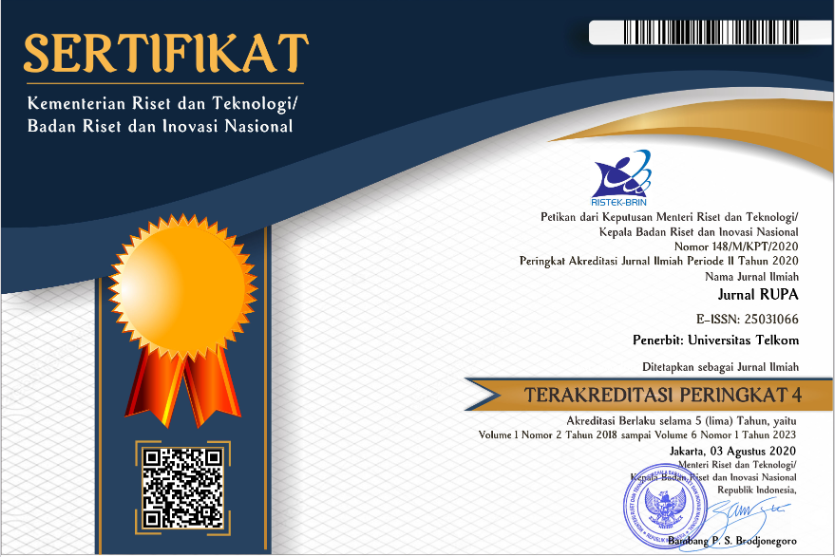Potensi Penerapan Konsep Zero Waste Pada Busana Tradisioanal Studi Kasus: Kimono
Abstract
Zero waste is a concept commonly used in the manufacturing industry in order to reduce the pre-consumer waste that occur during production phase. This concept was later adopted in the fashion industry to minimize left-overs or scraps when cutting patterns pieces on fabric. Unknown to most, this concept was actually used by our ancestors to create traditional clothes in the simplest form. Geometric shape is one of the simplest form of clothing adopted in many cultures for their traditional clothes. This shape can be seen in most Asian cultures, one of them is Japan. Kimono, Japanese traditional clothes, is one example of adapting the geometric shape for clothing purposes. Constructed from a basic rectangle shape made of fabric that is woven traditionally, it has many potential to evolve in terms of construction and production method, furthermore, having the possibility of being more sustainable by applying the zero waste concept.








